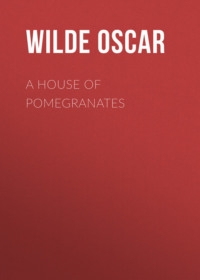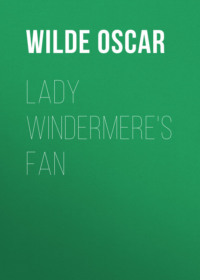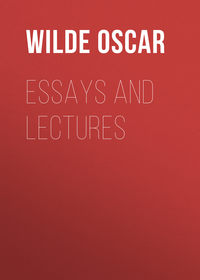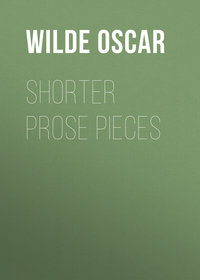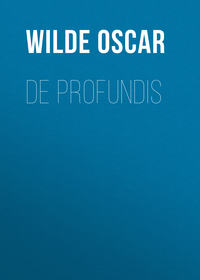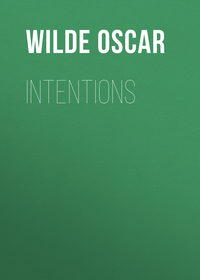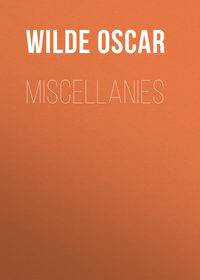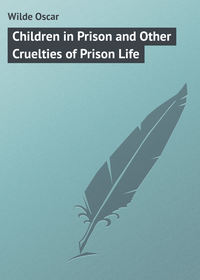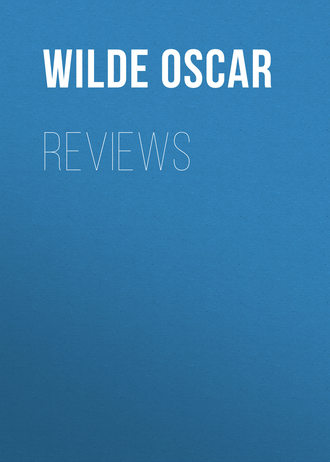 полная версия
полная версияReviews
A Cardinal Sin. By Hugh Conway. (Remington and Co.)
TO READ OR NOT TO READ
(Pall Mall Gazette, February 8, 1886.)
Books, I fancy, may be conveniently divided into three classes: —
1. Books to read, such as Cicero’s Letters, Suetonius, Vasari’s Lives of the Painters, the Autobiography of Benvenuto Cellini, Sir John Mandeville, Marco Polo, St. Simon’s Memoirs, Mommsen, and (till we get a better one) Grote’s History of Greece.
2. Books to re-read, such as Plato and Keats: in the sphere of poetry, the masters not the minstrels; in the sphere of philosophy, the seers not the savants.
3. Books not to read at all, such as Thomson’s Seasons, Rogers’s Italy, Paley’s Evidences, all the Fathers except St. Augustine, all John Stuart Mill except the essay on Liberty, all Voltaire’s plays without any exception, Butler’s Analogy, Grant’s Aristotle, Hume’s England, Lewes’s History of Philosophy, all argumentative books and all books that try to prove anything.
The third class is by far the most important. To tell people what to read is, as a rule, either useless or harmful; for, the appreciation of literature is a question of temperament not of teaching; to Parnassus there is no primer and nothing that one can learn is ever worth learning. But to tell people what not to read is a very different matter, and I venture to recommend it as a mission to the University Extension Scheme.
Indeed, it is one that is eminently needed in this age of ours, an age that reads so much, that it has no time to admire, and writes so much, that it has no time to think. Whoever will select out of the chaos of our modern curricula ‘The Worst Hundred Books,’ and publish a list of them, will confer on the rising generation a real and lasting benefit.
After expressing these views I suppose I should not offer any suggestions at all with regard to ‘The Best Hundred Books,’ but I hope you will allow me the pleasure of being inconsistent, as I am anxious to put in a claim for a book that has been strangely omitted by most of the excellent judges who have contributed to your columns. I mean the Greek Anthology. The beautiful poems contained in this collection seem to me to hold the same position with regard to Greek dramatic literature as do the delicate little figurines of Tanagra to the Phidian marbles, and to be quite as necessary for the complete understanding of the Greek spirit.
I am also amazed to find that Edgar Allan Poe has been passed over. Surely this marvellous lord of rhythmic expression deserves a place? If, in order to make room for him, it be necessary to elbow out some one else, I should elbow out Southey, and I think that Baudelaire might be most advantageously substituted for Keble.
No doubt, both in the Curse of Kehama and in the Christian Year there are poetic qualities of a certain kind, but absolute catholicity of taste is not without its dangers. It is only an auctioneer who should admire all schools of art.
TWELFTH NIGHT AT OXFORD
(Dramatic Review, February 20, 1886.)
On Saturday last the new theatre at Oxford was opened by the University Dramatic Society. The play selected was Shakespeare’s delightful comedy of Twelfth Night, a play eminently suitable for performance by a club, as it contains so many good acting parts. Shakespeare’s tragedies may be made for a single star, but his comedies are made for a galaxy of constellations. In the first he deals with the pathos of the individual, in the second he gives us a picture of life. The Oxford undergraduates, then, are to be congratulated on the selection of the play, and the result fully justified their choice. Mr. Bourchier as Festa the clown was easy, graceful and joyous, as fanciful as his dress and as funny as his bauble. The beautiful songs which Shakespeare has assigned to this character were rendered by him as charmingly as they were dramatically. To act singing is quite as great an art as to sing. Mr. Letchmere Stuart was a delightful Sir Andrew, and gave much pleasure to the audience. One may hate the villains of Shakespeare, but one cannot help loving his fools. Mr. Macpherson was, perhaps, hardly equal to such an immortal part as that of Sir Toby Belch, though there was much that was clever in his performance. Mr. Lindsay threw new and unexpected light on the character of Fabian, and Mr. Clark’s Malvolio was a most remarkable piece of acting. What a difficult part Malvolio is! Shakespeare undoubtedly meant us to laugh all through at the pompous steward, and to join in the practical joke upon him, and yet how impossible not to feel a good deal of sympathy with him! Perhaps in this century we are too altruistic to be really artistic. Hazlitt says somewhere that poetical justice is done him in the uneasiness which Olivia suffers on account of her mistaken attachment to Orsino, as her insensibility to the violence of the Duke’s passion is atoned for by the discovery of Viola’s concealed love for him; but it is difficult not to feel Malvolio’s treatment is unnecessarily harsh. Mr. Clark, however, gave a very clever rendering, full of subtle touches. If I ventured on a bit of advice, which I feel most reluctant to do, it would be to the effect that while one should always study the method of a great artist, one should never imitate his manner. The manner of an artist is essentially individual, the method of an artist is absolutely universal. The first is personality, which no one should copy; the second is perfection, which all should aim at. Miss Arnold was a most sprightly Maria, and Miss Farmer a dignified Olivia; but as Viola Mrs. Bewicke was hardly successful. Her manner was too boisterous and her method too modern. Where there is violence there is no Viola, where there is no illusion there is no Illyria, and where there is no style there is no Shakespeare. Mr. Higgins looked the part of Sebastian to perfection, and some of the minor characters were excellently played by Mr. Adderley, Mr. King-Harman, Mr. Coningsby Disraeli and Lord Albert Osborne. On the whole, the performance reflected much credit on the Dramatic Society; indeed, its excellence was such that I am led to hope that the University will some day have a theatre of its own, and that proficiency in scene-painting will be regarded as a necessary qualification for the Slade Professorship. On the stage, literature returns to life and archæology becomes art. A fine theatre is a temple where all the muses may meet, a second Parnassus, and the dramatic spirit, though she has long tarried at Cambridge, seems now to be migrating to Oxford.
Thebes did her green unknowing youth engage;She chooses Athens in her riper age.THE LETTERS OF A GREAT WOMAN
(Pall Mall Gazette, March 6, 1886.)
Of the many collections of letters that have appeared in this century few, if any, can rival for fascination of style and variety of incident the letters of George Sand which have recently been translated into English by M. Ledos de Beaufort. They extend over a space of more than sixty years, from 1812 to 1876, in fact, and comprise the first letters of Aurore Dupin, a child of eight years old, as well as the last letters of George Sand, a woman of seventy-two. The very early letters, those of the child and of the young married woman, possess, of course, merely a psychological interest; but from 1831, the date of Madame Dudevant’s separation from her husband and her first entry into Paris life, the interest becomes universal, and the literary and political history of France is mirrored in every page.
For George Sand was an indefatigable correspondent; she longs in one of her letters, it is true, for ‘a planet where reading and writing are absolutely unknown,’ but still she had a real pleasure in letter-writing. Her greatest delight was the communication of ideas, and she is always in the heart of the battle. She discusses pauperism with Louis Napoleon in his prison at Ham, and liberty with Armand Barbes in his dungeon at Vincennes; she writes to Lamennais on philosophy, to Mazzini on socialism, to Lamartine on democracy, and to Ledru-Rollin on justice. Her letters reveal to us not merely the life of a great novelist but the soul of a great woman, of a woman who was one with all the noblest movements of her day and whose sympathy with humanity was boundless absolutely. For the aristocracy of intellect she had always the deepest veneration, but the democracy of suffering touched her more. She preached the regeneration of mankind, not with the noisy ardour of the paid advocate, but with the enthusiasm of the true evangelist. Of all the artists of this century she was the most altruistic; she felt every one’s misfortunes except her own. Her faith never left her; to the end of her life, as she tells us, she was able to believe without illusions. But the people disappointed her a little. She saw that they followed persons not principles, and for ‘the great man theory’ George Sand had no respect. ‘Proper names are the enemies of principles’ is one of her aphorisms.
So from 1850 her letters are more distinctly literary. She discusses modern realism with Flaubert, and play-writing with Dumas fils; and protests with passionate vehemence against the doctrine of L’art pour l’art. ‘Art for the sake of itself is an idle sentence,’ she writes; ‘art for the sake of truth, for the sake of what is beautiful and good, that is the creed I seek.’ And in a delightful letter to M. Charles Poncy she repeats the same idea very charmingly. ‘People say that birds sing for the sake of singing, but I doubt it. They sing their loves and happiness, and in that they are in keeping with nature. But man must do something more, and poets only sing in order to move people and to make them think.’ She wanted M. Poncy to be the poet of the people and, if good advice were all that had been needed, he would certainly have been the Burns of the workshop. She drew out a delightful scheme for a volume to be called Songs of all Trades and saw the possibilities of making handicrafts poetic. Perhaps she valued good intentions in art a little too much, and she hardly understood that art for art’s sake is not meant to express the final cause of art but is merely a formula of creation; but, as she herself had scaled Parnassus, we must not quarrel at her bringing Proletarianism with her. For George Sand must be ranked among our poetic geniuses. She regarded the novel as still within the domain of poetry. Her heroes are not dead photographs; they are great possibilities. Modern novels are dissections; hers are dreams. ‘I make popular types,’ she writes, ‘such as I do no longer see, but such as they should and might be.’ For realism, in M. Zola’s acceptation of the word, she had no admiration. Art to her was a mirror that transfigured truths but did not represent realities. Hence she could not understand art without personality. ‘I am aware,’ she writes to Flaubert, ‘that you are opposed to the exposition of personal doctrine in literature. Are you right? Does not your opposition proceed rather from a want of conviction than from a principle of æsthetics? If we have any philosophy in our brain it must needs break forth in our writings. But you, as soon as you handle literature, you seem anxious, I know not why, to be another man, the one who must disappear, who annihilates himself and is no more. What a singular mania! What a deficient taste! The worth of our productions depends entirely on our own. Besides, if we withhold our own opinions respecting the personages we create, we naturally leave the reader in uncertainty as to the opinion he should himself form of them. That amounts to wishing not to be understood, and the result of this is that the reader gets weary of us and leaves us.’
She herself, however, may be said to have suffered from too dominant a personality, and this was the reason of the failure of most of her plays.
Of the drama in the sense of disinterested presentation she had no idea, and what is the strength and life-blood of her novels is the weakness of her dramatic works. But in the main she was right. Art without personality is impossible. And yet the aim of art is not to reveal personality, but to please. This she hardly recognised in her æsthetics, though she realised it in her work. On literary style she has some excellent remarks. She dislikes the extravagances of the romantic school and sees the beauty of simplicity. ‘Simplicity,’ she writes, ‘is the most difficult thing to secure in this world: it is the last limit of experience and the last effort of genius.’ She hated the slang and argot of Paris life, and loved the words used by the peasants in the provinces. ‘The provinces,’ she remarks, ‘preserve the tradition of the original tongue and create but few new words. I feel much respect for the language of the peasantry; in my estimation it is the more correct.’
She thought Flaubert too much preoccupied with the sense of form, and makes these excellent observations to him – perhaps her best piece of literary criticism. ‘You consider the form as the aim, whereas it is but the effect. Happy expressions are only the outcome of emotion and emotion itself proceeds from a conviction. We are only moved by that which we ardently believe in.’ Literary schools she distrusted. Individualism was to her the keystone of art as well as of life. ‘Do not belong to any school: do not imitate any model,’ is her advice. Yet she never encouraged eccentricity. ‘Be correct,’ she writes to Eugene Pelletan, ‘that is rarer than being eccentric, as the time goes. It is much more common to please by bad taste than to receive the cross of honour.’
On the whole, her literary advice is sound and healthy. She never shrieks and she never sneers. She is the incarnation of good sense. And the whole collection of her letters is a perfect treasure-house of suggestions both on art and on politics. The manner of the translation is often rather clumsy, but the matter is always so intensely interesting that we can afford to be charitable.
Letters of George Sand. Translated and edited by Raphael Ledos de Beaufort. (Ward and Downey.)
NEWS FROM PARNASSUS
(Pall Mall Gazette, April 12, 1886.)
That most delightful of all French critics, M. Edmond Scherer, has recently stated in an article on Wordsworth that the English read far more poetry than any other European nation. We sincerely hope this may be true, not merely for the sake of the public but for the sake of the poets also. It would be sad indeed if the many volumes of poems that are every year published in London found no readers but the authors themselves and the authors’ relations; and the real philanthropist should recognise it as part of his duties to buy every new book of verse that appears. Sometimes, we acknowledge, he will be disappointed, often he will be bored; still now and then he will be amply rewarded for his reckless benevolence.
Mr. George Francis Armstrong’s Stories of Wicklow, for instance, is most pleasant reading. Mr. Armstrong is already well known as the author of Ugone, King Saul and other dramas, and his latest volume shows that the power and passion of his early work has not deserted him. Most modern Irish poetry is purely political and deals with the wickedness of the landlords and the Tories; but Mr. Armstrong sings of the picturesqueness of Erin, not of its politics. He tells us very charmingly of the magic of its mists and the melody of its colour, and draws a most captivating picture of the peasants of the county Wicklow, whom he describes as
A kindly folk in vale and moor,Unvexed with rancours, frank and freeIn mood and manners – rich with poorAttuned in happiest amity:Where still the cottage door is wide,The stranger welcomed at the hearth,And pleased the humbler hearts confideStill in the friend of gentler birth.The most ambitious poem in the volume is De Verdun of Darragh. It is at once lyrical and dramatic, and though its manner reminds us of Browning and its method of Maud, still all through it there is a personal and individual note. Mr. Armstrong also carefully observes the rules of decorum, and, as he promises his readers in a preface, keeps quite clear of ‘the seas of sensual art.’ In fact, an elderly maiden lady could read this volume without a blush, a thrill, or even an emotion.
Dr. Goodchild does not possess Mr. Armstrong’s literary touch, but his Somnia Medici is distinguished by a remarkable quality of forcible and direct expression. The poem that opens his volume, Myrrha, or A Dialogue on Creeds, is quite as readable as a metrical dialogue on creeds could possibly be; and The Organ Builder is a most romantic story charmingly told. Dr. Goodchild seems to be an ardent disciple of Mr. Browning, and though he may not be able to reproduce the virtues of his master, at least he can echo his defects very cleverly. Such a verse as —
’Tis the subtle essayalOf the Jews and Judas,Such lying lispMight hail a will-o’-the-wisp,A thin somebody – Theudas —is an excellent example of low comedy in poetry. One of the best poems in the book is The Ballad of Three Kingdoms. Indeed, if the form were equal to the conception, it would be a delightful work of art; but Dr. Goodchild, though he may be a master of metres, is not a master of music yet. His verse is often harsh and rugged. On the whole, however, his volume is clever and interesting.
Mr. Keene has not, we believe, a great reputation in England as yet, but in India he seems to be well known. From a collection of criticisms appended to his volume it appears that the Overland Mail has christened him the Laureate of Hindostan and that the Allahabad Pioneer once compared him to Keats. He is a pleasant rhymer, as rhymers go, and, though we strongly object to his putting the Song of Solomon into bad blank verse, still we are quite ready to admire his translations of the Pervigilium Veneris and of Omar Khayyam. We wish he would not write sonnets with fifteen lines. A fifteen-line sonnet is as bad a monstrosity as a sonnet in dialogue. The volume has the merit of being very small, and contains many stanzas quite suitable for valentines.
Finally we come to Procris and Other Poems, by Mr. W. G. Hole. Mr. Hole is apparently a very young writer. His work, at least, is full of crudities, his syntax is defective, and his grammar is questionable. And yet, when all is said, in the one poem of Procris it is easy to recognise the true poetic ring. Elsewhere the volume is amateurish and weak. The Spanish Main was suggested by a leader in the Daily Telegraph, and bears all the traces of its lurid origin. Sir Jocellyn’s Trust is a sort of pseudo-Tennysonian idyll in which the damozel says to her gallant rescuer, ‘Come, come, Sir Knight, I catch my death of cold,’ and recompenses him with
What noble mindsRegard the first reward, – an orphan’s thanks.Nunc Dimittis is dull and The Wandering Jew dreadful; but Procris is a beautiful poem. The richness and variety of its metaphors, the music of its lines, the fine opulence of its imagery, all seem to point to a new poet. Faults, it is true, there are in abundance; but they are faults that come from want of trouble, not from want of taste. Mr. Hole shows often a rare and exquisite sense of beauty and a marvellous power of poetic vision, and if he will cultivate the technique of his craft a little more we have no doubt but that he will some day give us work worthy to endure. It is true that there is more promise than perfection in his verse at present, yet it is a promise that seems likely to be fulfilled.
(1) Stories of Wicklow. By George Francis Armstrong, M.A. (Longmans, Green and Co.)
(2) Somnia Medici. By John A. Goodchild. Second Series. (Kegan Paul.)
(3) Verses: Translated and Original. By H. E. Keene. (W. H. Allen and Co.)
(4) Procris and Other Poems. By W. G. Hole. (Kegan Paul.)
SOME NOVELS
(Pall Mall Gazette, April 14, 1886.)
After a careful perusal of ’Twixt Love and Duty, by Mr. Tighe Hopkins, we confess ourselves unable to inform anxious inquirers who it is that is thus sandwiched, and how he (or she) got into so unpleasant a predicament. The curious reader with a taste for enigmas may be advised to find out for himself – if he can. Even if he be unsuccessful, his trouble will be repaid by the pleasant writing and clever character drawing of Mr. Hopkins’s tale. The plot is less praiseworthy. The whole Madeira episode seems to lead up to this dilemma, and after all it comes to nothing. We brace up our nerves for a tragedy and are treated instead to the mildest of marivaudage – which is disappointing. In conclusion, one word of advice to Mr. Hopkins: let him refrain from apostrophising his characters after this fashion: ‘Oh, Gilbert Reade, what are you about that you dally with this golden chance?’ and so forth. This is one of the worst mannerisms of a bygone generation of story tellers.
Mr. Gallenga has written, as he says, ‘a tale without a murder,’ but having put a pistol-ball through his hero’s chest and left him alive and hearty notwithstanding, he cannot be said to have produced a tale without a miracle. His heroine, too, if we may judge by his descriptions of her, is ‘all a wonder and a wild desire.’ At the age of seventeen she ‘was one of the Great Maker’s masterpieces.. a living likeness of the Dresden Madonna.’ One rather shudders to think of what she may become at forty, but this is an impertinent prying into futurity. She hails from ‘Maryland, my Maryland!’ and has ‘received a careful, if not a superior, education.’ Need we add that she marries the heir to an earldom who, as aforesaid, has had himself perforated by a pistol-bullet on her behalf? Mr. Gallenga’s division of this book into acts and scenes is not justified by anything specially dramatic either in its structure or its method. The dialogue, in truth, is somewhat stilted. Nevertheless, its first-hand sketches of Roman society are not without interest, and one or two characters seem to be drawn from nature.
The Life’s Mistake which forms the theme of Mrs. Lovett Cameron’s two volumes is not a mistake after all, but results in unmixed felicity; and as it is brought about by fraud on the part of the hero, this conclusion is not as moral as it might be. For the rest, the tale is a very familiar one. Its personages are the embarrassed squire with his charming daughter, the wealthy and amorous mortgagee, and the sailor lover who is either supposed to be drowned or falsely represented to be fickle – in Mrs. Cameron’s tale he is both in succession. When we add that there is a stanza from Byron on the title-page and a poetical quotation at the beginning of each chapter, we have possessed the discerning reader of all necessary information both as to the matter and the manner of Mrs. Cameron’s performance.
Mr. E. O. Pleydell-Bouverie has endowed the novel-writing fraternity with a new formula for the composition of titles. After J. S.; or, Trivialities there is no reason why we should not have A. B.; or, Platitudes, M.N.; or, Sentimentalisms, Y.Z.; or, Inanities. There are many books which these simple titles would characterise much more aptly than any high-flown phrases – as aptly, in fact, as Mr. Bouverie’s title characterises the volume before us. It sets forth the uninteresting fortunes of an insignificant person, one John Stiles, a briefless barrister. The said John falls in love with a young lady, inherits a competence, omits to tell his love, and is killed by the bursting of a fowling-piece – that is all. The only point of interest presented by the book is the problem as to how it ever came to be written. We can scarcely find the solution in Mr. Bouverie’s elaborately smart style which cannot be said to transmute his ‘trivialities’ into ‘flies in amber.’
Mr. Swinburne once proposed that it should be a penal offence against literature for any writer to affix a proverb, a phrase or a quotation to a novel, by way of tag or title. We wonder what he would say to the title of ‘Pen Oliver’s’ last book! Probably he would empty on it the bitter vial of his scorn and satire. All But is certainly an intolerable name to give to any literary production. The story, however, is quite an interesting one. At Laxenford Hall live Lord and Lady Arthur Winstanley. Lady Arthur has two children by her first marriage, the elder of whom, Walter Hope-Kennedy by name, is heir to the broad acres. Walter is a pleasant English boy, fonder of cricket than of culture, healthy, happy and susceptible. He falls in love with Fanny Taylor, a pretty village girl; is thrown out of his dog-cart one night through the machinations of a jealous rival, breaks one of his ribs and gets a violent fever. His stepfather tries to murder him by subcutaneous injections of morphia but is detected by the local doctor, and Walter recovers. However, he does not marry Fanny after all, and the story ends ineffectually. To say of a dress that ‘it was rather under than over adorned’ is not very pleasing English, and such a phrase as ‘almost always, but by no means invariably,’ is quite detestable. Still we must not expect the master of the scalpel to be the master of the stilus as well. All But is a very charming tale, and the sketches of village life are quite admirable. We recommend it to all who are tired of the productions of Mr. Hugh Conway’s dreadful disciples.


